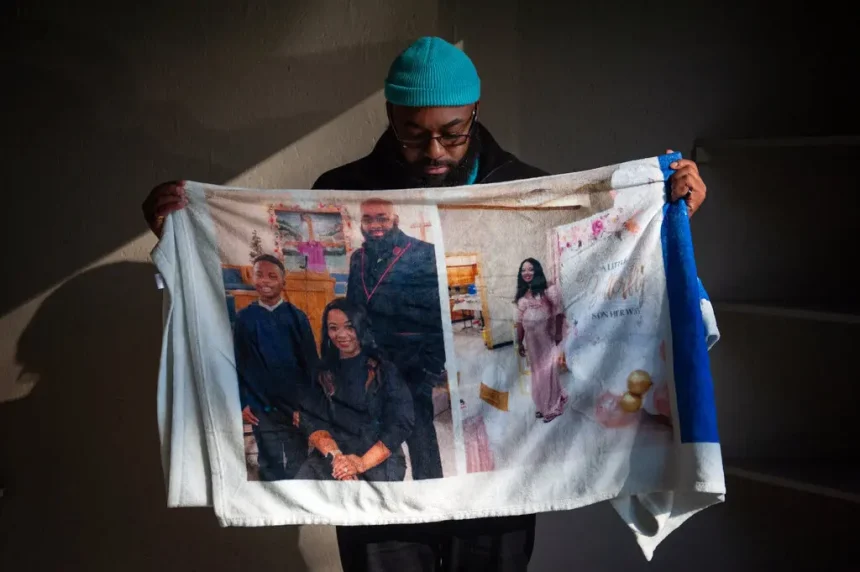The last day Byron Stribling spent with his wife, Harmony, was the Fourth of July in 2021. A great day, he always says.
The holiday fell on a Sunday. The congregation at their church in Belzoni, a small town in the Mississippi Delta, blessed the couple and prayed for a safe delivery for Ms. Ball-Stribling. She was eight months pregnant and scheduled to have a C-section five days later.
At a barbecue, the Striblings feasted on ribs, collard greens, potato salad and cornbread. But around midnight, Ms. Ball-Stribling threw up and said her chest hurt. “She wanted to lay down, but I told her, ‘We need to go somewhere,’” Mr. Stribling, 32, recalled.
Ambulances in the Delta are unreliable, and the only hospital in Belzoni closed over a decade ago. So they piled into his car and sped toward Yazoo City, Miss., the closest town with an emergency room, about 30 miles away.
On the way, Ms. Ball-Stribling had a seizure. Panicked, Mr. Stribling called 911. The dispatcher told Mr. Stribling to pull over and start CPR, so he slammed on the brakes and pumped her chest on the side of the road until an ambulance came. But he already knew he had lost her, there on the shoulder of Route 49-W.
What killed Harmony Ball-Stribling? The death certificate says the cause of death was complications of pre-eclampsia, a life-threatening blood pressure disorder that can develop during pregnancy, exacerbated by hypertension and hardening of the arteries. But that’s not the whole story.
Because even though Ms. Ball-Stribling was just 30, married and had health insurance, the odds were against her: She was a Black woman in America, where pregnant women of color die at almost three times the rate of pregnant white women.
She lived in a rural health care “desert,” a county with no obstetrician or certified nurse midwife and no hospital that delivered babies — in a state with the worst maternal and infant mortality rates in the country, and the lowest life expectancy.
Her story is a case study of how powerful social, economic and environmental forces conspire against mothers of color in the United States, undermining their health even when they have access to medical care.

Researchers have become increasingly aware of the importance of these so-called social determinants of health. Well-being is inextricably linked to life circumstances — like living in safe neighborhoods with good schools and easy access to healthy food — and it is powerfully diminished when everyday life is buffeted by crime, pollution and racism.
“How you live, where you live and what you eat actually affect the DNA and affect genetic expression,” said Dr. Yvonne Maldonado, a professor at Stanford University School of Medicine. “There are actual biological changes that people go through based on their social determinants.”
The American Heart Association, taking all these factors into account, has modified the calculator that doctors use to evaluate the risk of cardiovascular disease, reserving space in the formula for a patient’s ZIP code as a proxy for social determinants.
At hospitals that treat low-income and minority patients, physicians report spending time making sure that patients have roofs over their heads when they go home and that their utilities aren’t cut off. Some hospitals have started food pantries so their staff members can write food “prescriptions.”
Researchers have identified race as a social determinant of health, finding that simply being a member of a minority group puts pregnant women at higher risk.
“It’s not race itself that has an impact,” said Maria B. Ospina, a clinical epidemiologist and an associate professor at Queen’s University in Ontario, Canada. “I cannot emphasize that enough. It is the experiences of racism and segregation that have affected every single aspect of African American women’s lives.”
“Pregnant women are always blamed,” she added. “We need to stop individualizing risk without paying attention to what we collectively do to have these things happen.”
The Striblings’ hometown lies in the heart of the “Stroke Belt,” a region stretching from Louisiana to Virginia that is plagued by high rates of diseases linked to obesity, high blood pressure and diabetes. Dollar stores, which are plentiful in the Delta, stock sugary drinks, pasta, candy and canned foods that are high in salt.
There’s only one full-service supermarket in Belzoni. The best bargains there are giant slabs of pork ribs, which sell for about $3 a pound, and jumbo bags of frozen fries.
Belzoni has a playground and ball fields, but no real park, no Y.M.C.A. and no public swimming pool. The small hospital in town closed in 2013. On a recent visit, I asked Mr. Stribling if we could meet outside on a mild day, perhaps by the Yazoo River, which meanders alongside the town.
“Oh, Miss Roni,” he said, in a tone that combined resignation with a touch of exasperation about my naïveté. “This is Mississippi. There’s no park here. There’s no river trail. It’s the Mississippi Delta.”
Repeating Cycles
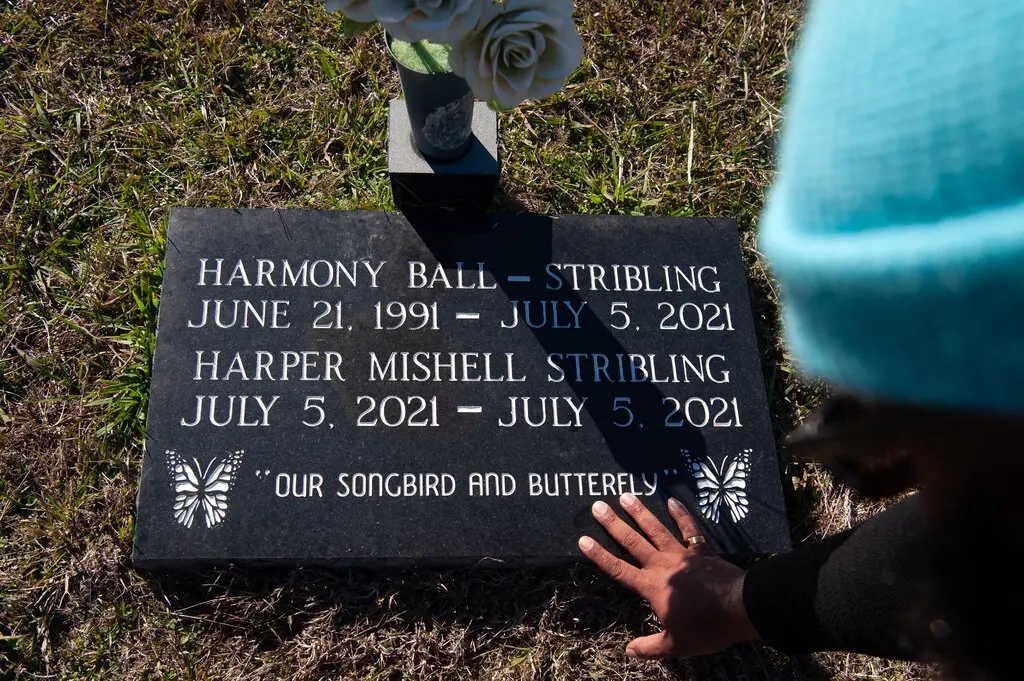
Ms. Ball-Stribling always stood out in a crowd. Her older sister, Cherrell Ball-Banks, remembers her sibling as warm and gregarious, with a voice like a nightingale’s and an intense energy, someone who was “always lovin’ on you.”
“We’re all firecrackers,” Ms. Ball-Banks said of her family. “But Harmony, she was a full-fledged firecracker.”
“She was the one who outshined all of us,” she added. “She was never in the background. When Harmony walked in the door, you knew she was there.”
Their mother, Shenelle Ball, was a teenager when she and her boyfriend, Renwick Baymon Sr., had the two girls. Money was tight, but no one in the small, predominantly Black town had much, Ms. Ball said in an interview.
The income per capita is under $20,000 in Belzoni, and one-third of the town’s population live in poverty, triple the national rate.
In an interview, Mr. Baymon said that his mother had him when she was 14, a year after having his older brother at 13. “You have kids when you’re young in Belzoni because there is nothing to do,” said Mr. Baymon, who left the town as soon as he could. “It’s a repeating cycle.”
The cycle repeated in the next generation. Ms. Ball-Banks was 13 when she had her first child, and Ms. Ball-Stribling had a baby when she was 16.
The girls’ mother relocated the family to Clarksville, Tenn., after marrying a man who was in the military. But the girls missed Belzoni and insisted on going back for middle school and high school. They loved the tight-knit church and community. They knew everyone in town, and everyone knew them.
Ms. Ball-Stribling was always on the honor roll at school, and she kept busy as a singer in the church choir and a cheerleader and a majorette in the school’s marching band. She had a boyfriend, Arsenio Robinson.
In 2008, a blood test during an emergency room visit for pain showed that she was pregnant — and pretty far along. Her son, Jadon, was born later that year, when Ms. Ball-Stribling was 16.
Increasingly, health researchers are inclined to see social determinants at work in stories like hers.

Teen pregnancy rates have plummeted throughout the United States, including in Mississippi. But the state continues to have the highest rates of teen births in the nation, almost double the country’s average and six times that of the state with the lowest rate, New Hampshire.
Teen pregnancies are disruptive, and they limit young women’s economic and educational options. But less widely known is that pregnancy is hard on a girl’s developing body, placing both mothers and their babies at risk for health problems with lifelong repercussions.
Teen mothers have more stillbirths and are more likely to develop pregnancy-related blood pressure disorders like pre-eclampsia, as Ms. Ball-Stribling did. They are also more likely to have babies who are born prematurely and are small for their gestational age.
“Pregnancy can be a beast on the body,” said Dr. Kimberly Sanford, an obstetrician who practiced in the Delta until 2022.
Yet Mississippi state law allows public schools to teach only abstinence-based sex education. It does not require the information to be medically accurate, and parents must opt in for their children to participate.
The advocacy organization Sex Ed for Social Change gives the state an F rating. The lack of comprehensive sex education is one reason there are so many new H.I.V. cases each year among Black teens and young adults in Mississippi, according to the organization.
The state also moved to outlaw almost all abortions, with few exceptions, just days after a Supreme Court decision in 2022 allowed it to do so.
Ms. Ball-Stribling stayed in high school and graduated, but the high blood pressure she developed during her pregnancy never went away. The medications she was prescribed had severe side effects, including headaches and fatigue. She found it difficult to control the condition.
When her relationship with Mr. Robinson fell apart, she started dating Byron Stribling. Her high blood pressure was a constant concern. Mr. Stribling was no stranger to the condition — he has it himself. High blood pressure ran in both of their families, and both had lost relatives younger than 50 to heart attacks and strokes.
Mr. Stribling, who works at his family’s funeral home, sees the results of chronic conditions like hypertension, high cholesterol and obesity in his profession as an undertaker.
“You start embalming, and the embalming fluid pushes blood out of the veins, and you can see the cholesterol,” he said. “You can tell, after you’ve been doing it so long, ‘That was a heart attack, we’ve got a blockage here.’”
Obesity is so common in the community, he said, that “it’s nothing for us to get a call about someone who’s dead who’s 450 pounds, who’s stuck in a back room, and we have to get them out.”
Unhealthy food habits are pervasive, he added: “People get up in the morning and eat fried chicken and Coca-Cola at 6 in the morning, before they go to work — not coffee and a yogurt parfait and an apple.”
‘A Bolt From the Blue’
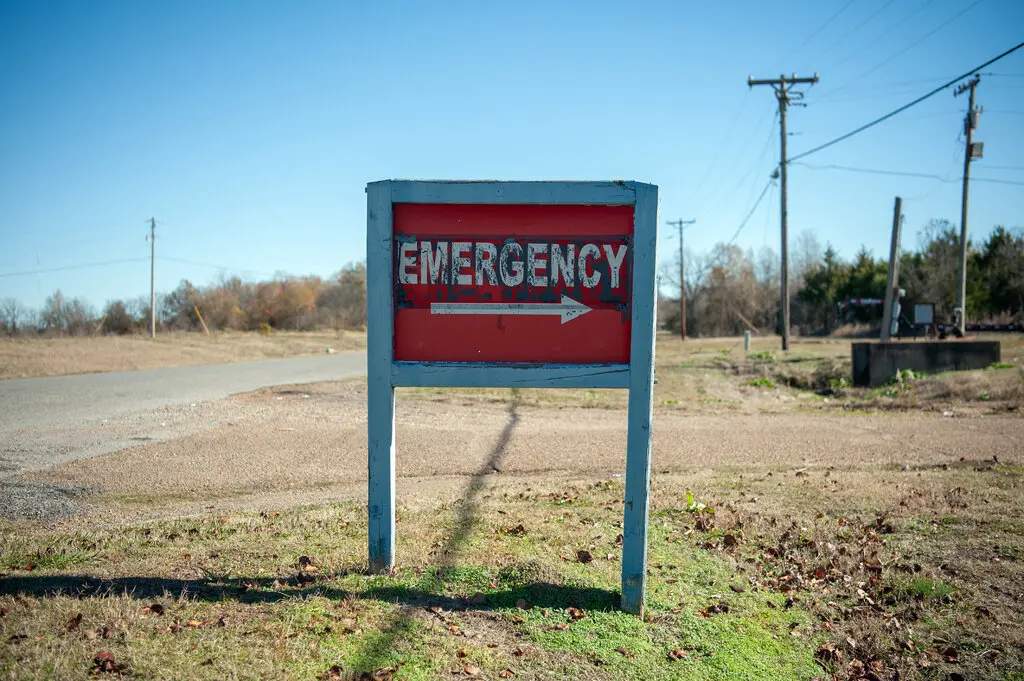
Ms. Ball-Stribling was a bit overweight but not obese, which is linked to high blood pressure. Still, early in their relationship, the condition proved stubborn, relentless. It can damage the body without causing overt symptoms. When her blood pressure was out of control, she felt fine.
“It was the most peculiar thing,” Mr. Stribling said. “When her pressure was brought down with the medication, that’s when she had symptoms.”
She was struggling to make ends meet, juggling college classes with shifts at Kentucky Fried Chicken. Mr. Stribling had a scholarship to attend music school in Jackson, Miss., but he came home on weekends and helped out.
He graduated in June 2015 and returned to Belzoni, and the two married a month later.
When Ms. Ball-Stribling’s son, Jadon, was about 9, his father, Mr. Robinson, was arrested and charged as an “accessory after the fact” to a gang-related murder. Prosecutors said he had thrown his car keys to the suspect so the man could flee. He was sentenced to 20 years in prison, which he is still serving.
As it turned out, the murder victim was related to Ms. Ball-Stribling. He was a cousin of Mr. Baymon, whose brother had also died violently: He was a bystander at a gas station who was killed after a fight broke out in a nearby club and spilled outside.
“It’s like living in Beirut,” Mr. Baymon said of Belzoni. “Big-city stuff happens in that small town, but there’s no medical care. You can bleed out before someone gets there.”
Mr. Stribling took on the role of father to Jadon after Mr. Robinson was sent away. But he and Ms. Ball-Stribling had trouble conceiving another child, and they decided to go to Dallas for fertility treatment.
Ms. Ball-Stribling conceived after two rounds of in vitro fertilization, and she continued prenatal care with doctors at the high-risk pregnancy care clinic of the University of Mississippi Medical Center in Jackson, about an hourlong drive from Belzoni.
But she was not doing well: Her blood pressure was often out of control, and she had splitting headaches, Mr. Stribling said.
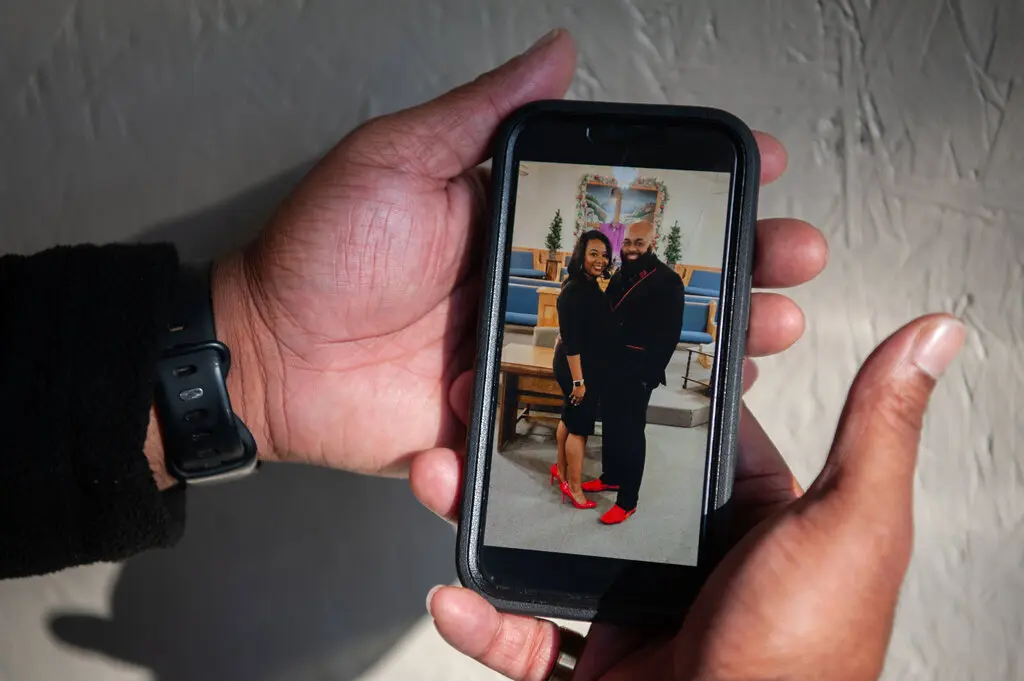
In May 2021, when she was about six months pregnant, she was hospitalized and diagnosed with pre-eclampsia, a serious pregnancy complication that causes high blood pressure and organ damage and can be fatal.
Though pre-eclampsia is rare, affecting only 5 percent to 8 percent of pregnant women, half of all women who start pregnancy with uncontrolled hypertension will develop it. It also is one of several complications, including stroke, that are more common among women who undergo fertility treatment.
How women with pre-eclampsia fare varies by region. Women in the South have the greatest incidence of pregnancy complications; those in the Northeast have the lowest.
Ms. Ball-Stribling was not a perfect patient. Her extended family was scheduled to go on vacation around the time she was hospitalized, and she didn’t want to miss out. After a few days of observation, she signed herself out against medical advice.
“I didn’t agree with it, but she insisted, and I didn’t want to make matters worse,” Mr. Stribling said.
In the weeks that followed, Ms. Ball-Stribling’s blood pressure stabilized. Her mother shared the record of blood pressure readings on her daughter’s phone: “May 24: 134/93. May 27: 115/85. June 7: 131/91.”
The Striblings saw doctors in Jackson twice a week, and “everything was looking good,” Mr. Stribling said. “Those last few visits, it was all smiles and giggles.”
But women with pre-eclampsia can experience sudden seizures or strokes, which are signs of a life-threatening complication called eclampsia. The term derives from the Greek word for “lightning” or “bolt from the blue.”
Before dawn on July 5, 2021, Ms. Ball-Stribling died. A hospital might have been able to save the fetus, a girl the couple planned to name Harper, but she died, too, on the side of the road.
Mr. Stribling said he had no way of explaining the loss, but he said he was a man of faith.
“I don’t know why, I don’t understand it — it hurts,” he said. “But none of us know when our expiration date is. It tells you that in the Bible. None of us know, so be ready.”
Since then, both Mr. Stribling and his mother-in-law, Ms. Ball, have pressed the state to provide more health services in rural areas in Mississippi, where at least five hospitals have closed since 2015, several have stopped delivering babies in recent years, and 35 — almost half of the state’s rural hospitals — are at risk of closing.
Nationally, more than 30 percent of all rural hospitals are at risk of shutting down.
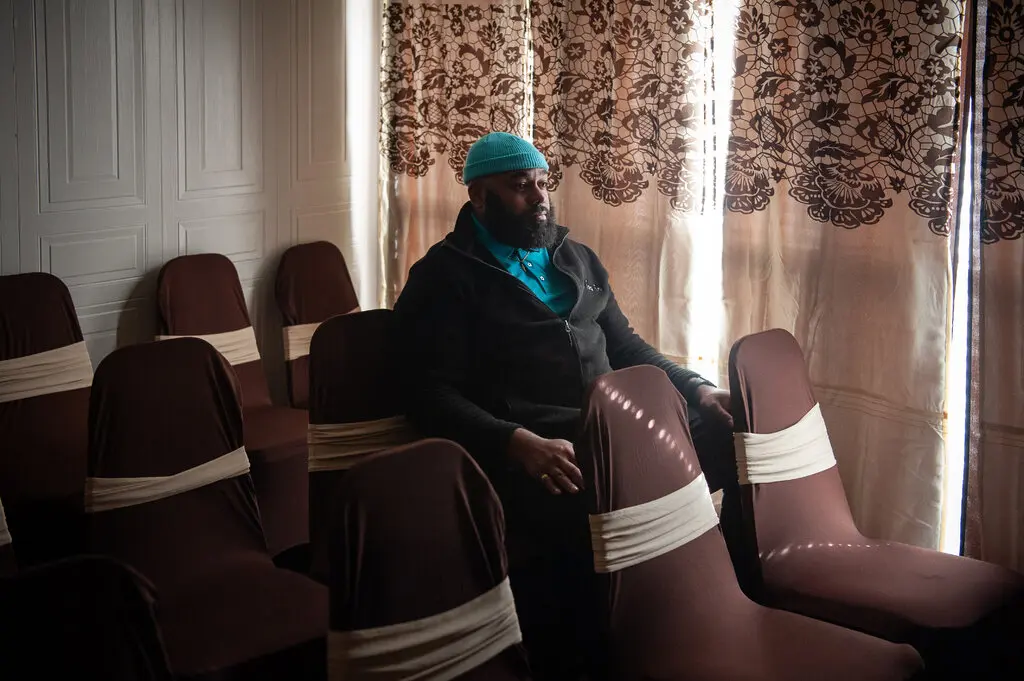
Mississippi is among 11 states that have not expanded Medicaid to cover all low-income residents, which means that more hospital patients and women giving birth are uninsured, pushing even more hospitals to the brink.
Hospital administrators often close labor and delivery units as a first cost-cutting measure because they are so expensive to staff around the clock.
“They always say there’s no money for hospitals,” Ms. Ball said. “But if we just had a stand-alone emergency care center, even with what happened to Harmony, maybe the baby could have survived.”
Indeed, the most recent report of the Mississippi Mortality Review Committee, which examined maternal deaths in the state during or within one year of pregnancy, concluded that a vast majority were preventable.
In an effort to improve birthing outcomes and infant health, Mississippi last year started a program that sends nurses into the homes of hundreds of at-risk moms and babies in rural areas.
None of the providers who cared for Ms. Ball-Stribling during her pregnancy ever reached out to Mr. Stribling after she died, he said. They didn’t call to find out what went wrong, and they didn’t call to express their condolences.
Annie Oeth, a spokeswoman for the University of Mississippi Medical Center, declined repeated requests for comment. She would not say whether the medical center had examined Ms. Ball-Stribling’s case as part of a standard quality-assurance review.
In August 2021, Harmony Ball-Stribling was awarded her bachelor’s degree in education, which she had been working toward for years through an online university. The diploma came in the mail after she died, her mother said.
Mr. Stribling bought a house and became guardian to Jadon, now a high school sophomore. Mr. Stribling is still paying off the debt incurred for the infertility services the couple received.
At family get-togethers, Ms. Ball-Stribling’s absence is palpable.
“When my father’s children all get together, we look around and ask, ‘Where’s that sparkle? That smile, that face, that sunshine?’” her sister said. “The light is gone.”

